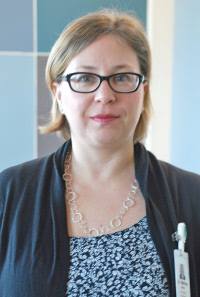By 2025, it has been predicted that there will be two times as many workers aged 50 years and older as those aged 25 and younger, and 30% of the US workforce will be aged 55 years and above.[1] This statistic reinforces the fact that people are living and working longer, making this segment of our population a more attractive asset to employers as the current disparity of unemployed workers and available jobs increases. With the availability of aging workers, it is important to consider their needs and how to leverage a multigenerational workforce.
As we age, we are more likely to encounter chronic illnesses, such as arthritis, cardiovascular disease, and vision and hearing impairments. Due to these aging realities, when older workers are injured, they tend to take longer to heal and return to work. Fortunately, older workers tend to experience less on-the-job injuries due to cautiousness and awareness of physical limitations, as well as previous experience. Although, accidents that involve older workers are more likely to be fatal. As a result, employers are encouraged to ensure that their return-to-work programs and policies take these needs into consideration, as well as confirm that their safety program are functioning optimally.
In addition to our physical work capacity, mental capacity (or cognitive ability) is an important component of our aging workforce. It is well established that as we age, our cognitive efficiency diminishes. This cognitive slowing is an expected part of the normal aging process and does not represent abnormal aging. What is typically less recognized is that reductions in our speed of mental processing can further contribute to age-related changes in other aspects of our cognitive function, including our ability to efficiently attend to information in our environment, our ability to quickly retrieve words in conversation, our ability to rapidly recall previously learned information, and our ability to multitask at a rapid pace. There is certainly variability in the aging process. Some older individuals will experience greater cognitive change compared to their peers of the same age and their cognitive difficulties may begin to impact their functioning at work and at home. In these cases, their difficulties represent pathological or abnormal aging. What we do know is that continued engagement, including cognitive (e.g., engaging in cognitively stimulating tasks/activities), physical (e.g., walking regularly), and social (e.g., engaging in complex conversations) activity, has been established in research to be associated with healthy brain aging.
Our aging workforce has a lot to offer, and their work peers will benefit from their knowledge and experience. Compared to their younger peers, older individuals have wisdom. They have insight and understanding, as well as judgment, into understanding life experiences. They also have greater knowledge that has been gained from prior learning. Through a collection of hands-on experience, they offer their expertise to their peers, as well as mentorship via the transferability of skills and knowledge. In addition to our work-related peers gaining expertise and knowledge from older peers, aging individuals also benefit from continued engagement in the workforce. The work environment has the potential to offer the degree of cognitive, social, and physical stimulation and engagement that has been associated with healthy brain aging.
As outlined above, there are both risks and benefits to employers, peers, and employees of engaging older workers and it is important for employers to optimize this multi-generational workforce. Some recommendations include:
- Dispel generational stereotypes. We recommend using inclusive language and/or avoiding use of language or terms that are stigmatizing to each generation, i.e. kid for younger workers and elderly for older workers.
- Mutual mentoring. One way to leverage these strengths is to encourage knowledge transfers between peer groups. Older workers share their knowledge and wisdom while younger workers can help build competency within the domains of technology and newer social norms.
- Hazard monitoring. Manage workplace hazards to account for older worker’s delayed reflexes, vision and hearing impairments, and reduced strength.
- Allocate career development opportunities. Older workers are just as interested in improving knowledge and skills as younger workers, so be sure that these opportunities are offered to all.
- Supervisor training. It is critical for supervisors to consider the needs of older workers, as well as younger workers, to anticipate conflicts and appreciate differences, as well as be flexible with management styles. Growth of management skills around multi-generational teams is constantly evolving.
- Provide the opportunity for challenges. Opportunities to engage in cognitively challenging work-related tasks should not end with increasing age. Provide those opportunities for cognitively stimulating, complex tasks to all, regardless of age.
Despite common beliefs that there are differences in how various generations think and their wants and needs, the truth is that we all want respect, meaningful work, security, opportunity and choice. The rest is a matter of cultural idiosyncrasy that can be appreciated and used to enrich us all.
[1] Ilmarinen, J.E. (2001). Aging workers. Occupational & Environmental Medicine. http://dx.doi.org/10.1136/oem.58.8.546.
*The views and opinions expressed in the Public Risk Management Association (PRIMA) blogs are those of each respective author. The views and opinions do not necessarily reflect the official policy or position of PRIMA.*

By: Mark S. Williams, DC, MBA, DACBOH
Medical Director, Claims, The Hartford
Responsibilities
Mark explores innovations in processes and products that are supported by scientific evidence in order to serve The Hartford employees and external customers. He provides consultative insight and leadership on health care matters across all products at The Hartford. This includes claims with complex medical issues, as well as thought leadership and education with clinical and claim staff.
Mark also provides guidance to impact health and wellness and empower The Hartford's customers to prevail both in and out of the workplace. He partners with business units to provide the best and in-depth answers to customers' most pressing questions.
Business Experience
Mark has been involved in healthcare, as well as disability and workers' compensation insurance industries for over 30 years.
Professional Affiliations
- American Chiropractic Association
- American Chiropractic Board of Occupational Health
- American Chiropractic Association Opioid Task Force (Chair)
- IAIABC Medical Issues Committee
- IAIABC Work Disability Prevention and Return-to-Work Committee
Education
Mark has a Doctor of Chiropractic degree as well as an MBA. He is board certified in occupational health and ergonomics, and has a bachelor degree in human biology.

By: Melina Griss, PhD, ABPP
Medical Director, The Hartford
Summary of Qualifications
Dr. Griss is a board-certified clinical neuropsychologist and medical director with The Hartford Insurance Company. She completed her doctorate in clinical psychology from Indiana University-Purdue University Indianapolis and has advanced specialized training in clinical neuropsychology. She has been employed as a clinician in various outpatient and inpatient settings within both community and university-based hospitals over the course of her career. Dr. Griss is a member of multiple professional organizations in clinical neuropsychology and she has conducted research in aging and severe forms of mental illness.
Responsibilities
Dr. Griss provides clinical and claim management direction at The Hartford, as well as clinical training/education to The Hartford clinical team.
Professional Affiliations
- American Academy of Clinical Neuropsychology (AACN)
- National Academy of Neuropsychology (NAN)
- Massachusetts Neuropsychological Society (MNS)
Education
- Doctor of Philosophy, Clinical Rehabilitation Psychology (Clinical Psychology)
- Board Certified in Clinical Neuropsychology by the American Board of Professional Psychology (ABPP)



